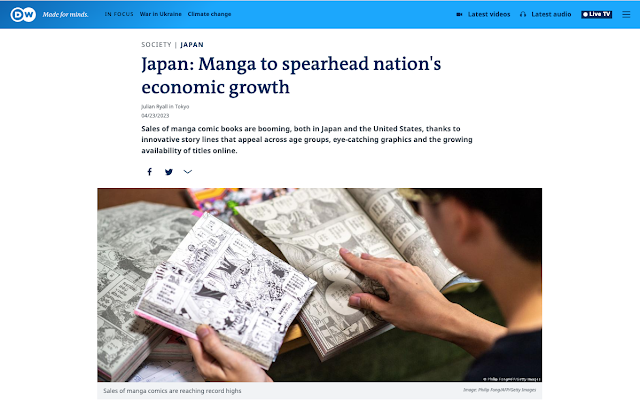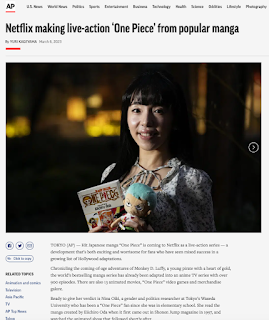My video interview with German TV (DW Deutsch / Deutsche Welle): How AI could save Anime

<<1:54 AI can help maintain the anime boom, says Roland Kelts, Professor and 1:58 Japanese culture expert. 1:59 He has written a book about anime. 2:02 "They call it 'in-betweener work,' when you draw frames in 2:07 between the keyframes. 2:09 And that kind of work can be done by AI very effectively and save the 2:13 studios money and time. 2:16 A lot of people think of anime as these big hits, etc. 2:20 But there are thousands of anime produced every year. 2:23 And many of them are just for late-night TV. 2:25 They are pretty cheap, so those can probably easily be produced by AI." 2:33 Technology isn’t seen as a threat in Japan, says Kelts. 2:37 This openness is rooted in the country’s indigenous 2:40 religion, Shinto. 2:41 Shinto is centered on worshipping kami, or spiritual entities. 2:45 They inhabit all kinds of objects, manmade or not, and everything is 2:49 accepted to be part of nature. 2:52 "Japanese creativity is quite fluid. 2:54 The very first a...












